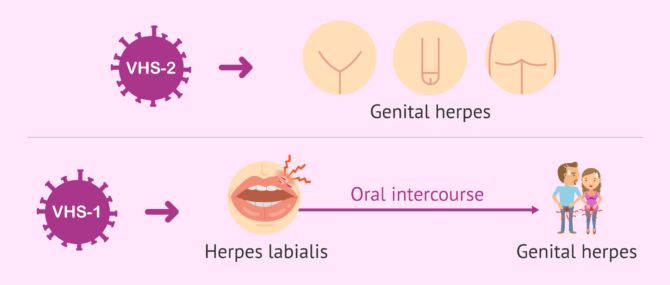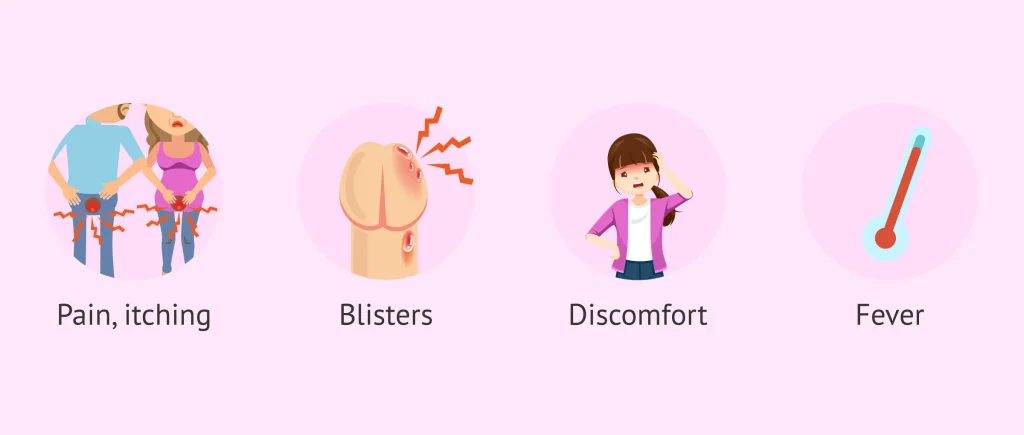HSV is one of the most common sexually transmitted diseases and it stands for Herpes Simplex Virus. The reason it occurs so often explains why prevention, management and support need to be in place. This extensive manual is going to cover several aspects of genital herpes ranging from its cause to its emotional impact and possible treatments.
1 Understanding Genital Herpes

Primarily, HSV-2 causes genital herpes; however, there are instances where HSV-1 often known as cold sores can lead to the infection through oral-genital contact. This mode of transmission occurs when there is direct skin-to-skin or mucosa-mucosa contact with the virus or infective body fluids such as semen and vaginal secretions during sexual activity. When acquired it retreats into sensory neurons and becomes latent only to re-emerge periodically causing recurrences.
2. Common Symptoms
Symptoms of genital herpes can manifest differently from person to person and may include:
- Tender blisters or sores on the genitals or buttocks
- Pruritus and burning that precedes the formation of vesicles
- Influenza-like symptoms such as fever, headache and swollen lymph nodes
- Painful urination or sexual intercourse

3. Prevention Strategies
Preventing genital herpes involves adopting multiple approaches that will reduce chances of infection. Primary prevention methods include:
- Always using condoms correctly and consistently when engaging in any kind of sex including vaginal, anal or oral sex
- Having few partners who have undergone STI testing
- Avoiding sexual acts during outbreaks or symptoms such as itching or burning sensations
- Open communication with partner about disease status and history
4. Diagnosis
Genital herpes diagnosis typically involves physical examination, medical history review and laboratory tests. HSV antibodies presence may be confirmed through viral culture, polymerase chain reaction(PCR) tests or blood tests and the diagnosis is made.
5. Treatment Options
Though genital herpes is incurable, several treatment options can help to manage symptoms, reduce the frequency of outbreaks, and lower the risk of transmission. Acyclovir, valacyclovir, and famciclovir are common antiviral drugs prescribed by physicians. They work best when started with the first signs or recurrent outbreaks.
6. Managing Outbreaks
Genital herpes outbreak management as well as relief from discomfort requires not only taking antiviral medicines but also self-care measures such as:
- Promoting cleanliness and dryness of the genitals to avoid bacterial infections
- Avoiding tight clothes and synthetic fabrics that worsen irritation
- Soothing pain or itching linked with blisters or ulcers by using topical creams or ointments
- Using cold compresses or sitz baths to alleviate distress and encourage healing
7. Emotional And Psychological Consequences.
The emotional and psychological trauma caused by living with genital herpes must not be ignored. There could be shame, guilt, anxiety or depression experienced by people especially in regard to revealing their STI status to sexual partners. In order to address these emotional challenges as well as build resilience it is possible for one to seek assistance from health professionals and counselors or join support groups.
8. Disclosure and Communication
It is important that individuals disclose their genital herpes status to sexual partners as part of responsible sexuality. Although difficult, sharing the information about one’s STI status calls for open communication in order for informed decisions making and risk reduction. Relationships may be improved through discussing about topics such as STIs testing, prevention methods and mutual support which can foster trust among partners.
9. Pregnancy and Genital Herpes
Pregnant women suffering from genital herpes require special precautions against transmission of the virus during childbirth. Antiviral medications may be prescribed during pregnancy to reduce the frequency of outbreaks and viral shedding by healthcare providers.
Cesarean delivery might sometimes also be recommended so as to avoid risks associated with neonatal herpes transmission.

10. FUTURE DIRECTIONS AND RESEARCH
Future research tries to develop vaccines and innovative treatments for genital herpes. Presently there is hope of preventing future HSV-2 infections because drugs are being tested in clinical trials. In addition, advances in antiviral therapy and molecular biology have helped to understand more about the virus and its treatment.
For additional information on genital herpes and other sexually transmitted infections, please visit the Centers for Disease Control and Prevention (CDC) website: CDC – Genital Herpes
Conclusion
Genital herpes is a complex health problem that is concerned with physical pain and suffering as well as mental, social and emotional issues. This knowledge will help them successfully manage their outbreaks and also avoid them by going for support in form of preventive measures. Open communication, education, and ongoing research are essential pillars in the collective effort to address the challenges posed by genital herpes and improve outcomes for affected individuals and communities alike.
